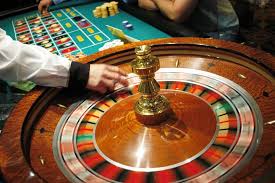
Gambling can be an exhilarating experience. Whether it’s the thrill of spinning the reels on a slot machine, the anticipation of a poker hand, or the rush of a sports bet, there’s no denying the appeal. However, behind the flashing lights and big wins lies a much darker side—one that many gamblers struggle with but rarely talk about. Gambling addiction, financial ruin, and strained relationships are just a few of the consequences that can arise when gambling becomes more than just a pastime.
In this blog, we’ll delve into the dark side of gambling by sharing real-life stories, uncovering the lessons they offer, and shedding light on how to approach gambling responsibly.
Real-Life Stories of Gambling Struggles
The Case of Michael: The Spiral into Debt
Michael was a casual gambler at first. He would visit the casino every now and then, enjoying a few games of blackjack with friends. The wins were small but satisfying, and he felt in control. However, over time, Michael’s casual gambling turned into something more. He began gambling alone, chasing losses, and relying on credit cards to fund his habit. Soon, he was borrowing money from family and friends to continue playing. Within a year, Michael was in debt to the tune of tens of thousands of dollars.
He realized that he had crossed a line when the joy of gambling was replaced by anxiety and guilt. What started as harmless entertainment had turned into an uncontrollable addiction that was damaging his finances, relationships, and mental health. The financial strain and stress affected his ability to maintain a steady job and caused significant tension with his loved ones. Michael’s story is a powerful reminder that gambling, when not managed carefully, can have severe consequences.
Sarah’s Story: The Emotional Toll of Online Gambling
Sarah, a single mother of two, was introduced to online gambling by friends who spoke highly of the easy access to games and bonuses available on mobile apps. At first, Sarah enjoyed the occasional game of online slots and some sports betting. However, the ease and convenience of gambling from her phone led to frequent and impulsive betting.
Sarah’s addiction to online gambling grew over time, as did the emotional toll it took on her. She found herself isolating from friends and family, feeling ashamed of her gambling habits. Despite the fleeting wins, the losses quickly piled up. The money she had been using to support her children and bills was spent on gambling. Sarah felt trapped in a cycle of hope, believing that the next big win would solve everything, only to lose more in the process. It was only after a deep personal crisis and the intervention of loved ones that Sarah sought help, but her story serves as a warning about how easy it is for gambling to spiral out of control.
The Lessons from Gambling’s Dark Side
1. Know Your Limits
One of the most crucial lessons from gambling stories like Michael and Sarah’s is the importance of knowing your limits. Gambling should always be seen as a form of entertainment, not as a way to make money or solve financial problems. Set strict boundaries before you start playing—both in terms of time and money. Decide on a budget and stick to it, even if you’re on a winning streak. If you find yourself chasing losses, it may be time to step away.
2. Avoid Escalating Risks
Both stories highlight the dangers of escalating risk-taking behaviors. Once you start increasing your bets to recoup losses, you’re on the path to addiction. Gambling should not be a means to “win back” money. Acknowledging when you’ve reached your limit and walking away from a session can help you avoid further financial and emotional damage.
3. Seek Support Early
Gambling addiction doesn’t always start with huge losses or dramatic events. It can begin with small bets and a sense of control. However, as the habit takes hold, the consequences can grow more severe. Recognizing early warning signs—such as betting more than you can afford or using gambling as an escape—can help prevent the escalation into addiction. Seeking support from friends, family, or a professional counselor early on can make a significant difference. There are also several organizations and support groups dedicated to helping those struggling with gambling addiction.
4. The Impact on Mental Health
The emotional and psychological toll of gambling addiction cannot be overstated. The shame and guilt of losing money can create a sense of isolation and despair. For many, the highs of winning are short-lived and overshadowed by the lows of losing. If you or someone you know is feeling overwhelmed by these emotions, it’s important to seek mental health support in addition to addressing the gambling problem.
5. Don’t Let Gambling Define You
The final lesson is the importance of maintaining perspective. Gambling should never define your identity or your self-worth. It’s easy to become obsessed with the idea of hitting a jackpot or winning big, but it’s crucial to remember that gambling is just one form of entertainment, not a solution to life’s challenges. Focusing on other aspects of life, like relationships, hobbies, and personal goals, can help maintain a healthy balance.
How to Gamble Responsibly
If you choose to gamble, whether online or at a physical casino, it’s important to approach it with a responsible mindset. Here are some strategies to ensure you stay in control:
- Set a Budget: Only gamble with money that you can afford to lose. Never dip into savings, rent, or money meant for essential expenses.
- Set Time Limits: Don’t let gambling consume your time. Set a timer or schedule breaks to help prevent prolonged sessions.
- Self-Exclusion Options: Many online casinos offer tools for self-exclusion, allowing players to limit or block their access if they feel they’re losing control.
- Take Regular Breaks: Stepping away from the game allows you to reset and assess your emotions. It also helps prevent impulsive decisions.
- Seek Help: If you ever feel like gambling is getting out of hand, don’t hesitate to seek help. There are many organizations available that provide support for individuals dealing with gambling problems.
Conclusion
While gambling can be a fun and thrilling pastime, it’s important to recognize its darker side. Stories of addiction and financial ruin remind us that gambling can quickly spiral out of control if not approached responsibly. By understanding the risks and learning from the experiences of others, we can enjoy gambling in a healthy way. Always remember to set limits, gamble responsibly, and seek help if you feel things are getting out of hand. The key to enjoying gambling is ensuring it remains a form of entertainment, not an uncontrollable obsession.


